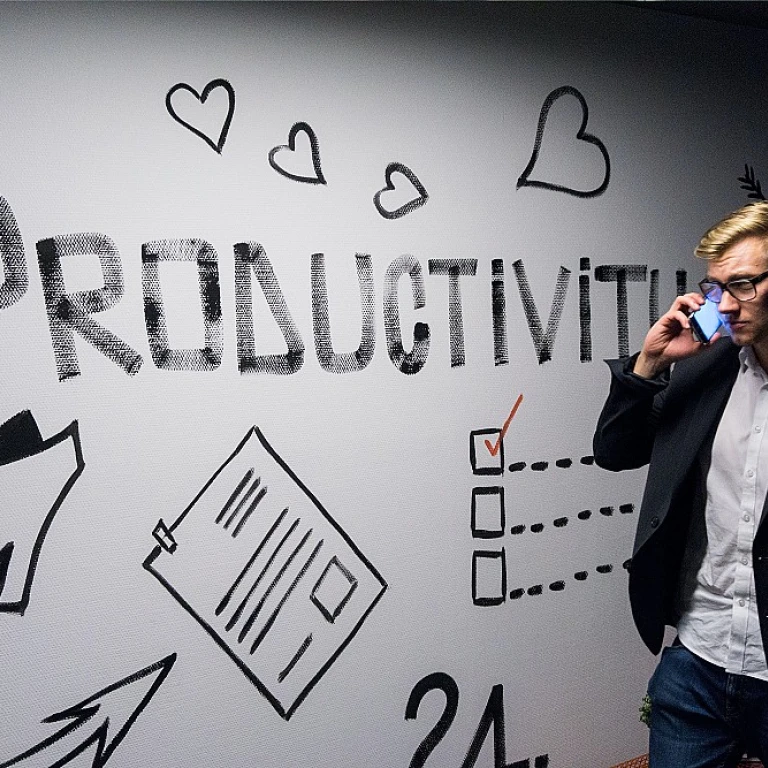Understanding the Role of AI in Talent Development
Exploring How AI Shapes Talent Growth
The intersection of artificial intelligence (AI) with talent development is reshaping how businesses approach human resources. In this rapidly evolving landscape, AI's role extends beyond mere automation to fostering better growth and development of skills.
AI, through its capacity to analyze vast amounts of data, is revolutionizing traditional talent development strategies. It provides organizations with insights into the skills and intelligence requisite for various roles, offering a clearer picture of the workforce. This, in turn, allows businesses to make informed talent decisions and plan strategically for the future.
In the United States, companies are increasingly deploying AI to identify innate talent within candidates and employees. This involves using skills data and talent intelligence to forecast performance potential. By understanding these elements, organizations can nurture growth mindsets and shift away from fixed mindset perspectives, promoting learning and development at all levels.
Moreover, AI's involvement in talent development extends to personalized learning. With skills-based assessments and real-time feedback, AI-driven platforms help employees and students alike acquire necessary skills more efficiently. This transition fosters a culture of continuous growth and development.
More insights can be found on addressing these AI applications in HR through the
AIHR Institute Blog, which explores how AI serves as a cornerstone for talent strategy and workforce evolution.
By investing in AI for talent management, organizations can adapt to the dynamic labor market, ensuring that they remain competitive by building a highly skilled and engaged workforce.
AI-Driven Recruitment: A New Era
Transforming Recruitment: Harnessing Technology
The traditional approach to recruitment has undergone a significant transformation in recent years, with artificial intelligence at the forefront of this evolution. Businesses are now able to leverage data-driven strategies to streamline talent acquisition processes, ultimately enhancing the discovery of suitable candidates in an increasingly competitive labor market.
AI-driven recruitment offers countless advantages over conventional methods. AI tools and algorithms efficiently sift through vast amounts of skills data, identifying candidates whose skills, intelligence, and experience align with the organization’s talent strategy. This data-fueled approach not only accelerates the recruitment process but also enhances talent intelligence, ensuring better talent management decisions.
Moreover, AI systems can identify patterns in candidate profiles that might not be immediately obvious to human recruiters. For instance, an individual with a growth mindset or a particular set of soft skills may be a perfect fit for a specific role due to their potential for learning and development talent. Unlike those with a fixed mindset, these candidates often demonstrate the hard work and emotional intelligence necessary to adapt and thrive in a dynamic work environment.
It’s worth noting that AI-driven recruitment does not replace the human touch. Instead, it augments the capabilities of HR professionals, allowing them to focus on strategic planning and workforce decisions that require innate talent insights and human intuition. The transition towards a more efficient, skills-based recruitment process reflects a broader shift in HR, emphasizing the importance of leveraging AI’s talent intelligence to optimize every stage of talent development.
The result is an evolving recruitment landscape where AI fosters better performance and growth, aligning employee potential with the long-term goals of businesses and organizations. To further explore opportunities in AI for human resources and understand how this transformation is reshaping the labor market in the United States and beyond, consider exploring resources such as
Lennar Careers in AI for HR. This insight is invaluable for students, professionals, and anyone interested in understanding the potential of AI in reshaping the modern workforce.
Personalized Learning and Development with AI
Harnessing AI for Tailored Learning Experiences
In the dynamic landscape of human resources, personalized learning and development have become paramount in nurturing talent and skills. With the advent of artificial intelligence, organizations are now able to tailor development strategies and leverage talent intelligence more effectively. AI provides the tools needed to analyze skills data and deliver customized learning experiences to foster a growth mindset.
The integration of AI into learning and development allows for real-time monitoring of the workforce's growth and progress. By examining data on employee performance and learning patterns, AI can suggest personalized development paths that align with both the individual’s and the business's objectives. This approach promotes continuous improvement and ensures that employees are not only meeting their current job requirements but also preparing for future roles in a rapidly evolving labor market.
Organizations that embrace AI-driven strategies can design learning frameworks that cater to different intelligence levels, fostering an environment of skill-based development. This ultimately helps in talent acquisition and retention, as employees feel valued and empowered to take charge of their professional development with a mindset geared toward growth and better performance.
Moreover, AI's capacity to harness emotional intelligence has significant implications for both personal and collective development within a company. By understanding and responding to the emotional cues of employees, AI can facilitate a more supportive and responsive learning environment. This personalized attention not only drives talent management but also enhances workforce planning by aligning development initiatives with broader talent strategy objectives.
For HR professionals looking to enhance organizational awareness, AI offers numerous opportunities to refine talent development strategies. By leveraging data-driven insights, businesses can make informed decisions regarding employee growth and maintain a competitive edge in the United States and beyond.
AI's Impact on Employee Engagement and Retention
Enhancing Employee Engagement and Retention with AI
In the competitive landscape of the modern labor market, organizations are continually seeking innovative ways to engage their workforce and ensure their retention. Artificial intelligence plays a crucial role in transforming talent management, enabling businesses to not only acquire talent but also maintain a motivated and productive workforce.
AI-driven tools allow companies to collect and analyze real-time data about employee behavior, preferences, and performance. This intelligence empowers HR teams to make informed talent decisions and tailor strategies to meet individual and team needs. By applying these insights, companies are better equipped to drive employee engagement through personalized career development opportunities and feedback loops.
A key aspect of AI's impact is its ability to foster a growth mindset among employees. Unlike the fixed mindset, which limits development talent based on innate intelligence, a growth mindset encourages continuous learning and improvement. AI facilitates this by providing employees with personalized learning paths and recommendations, helping them develop skills based on their unique strengths and interests.
Moreover, AI enhances the emotional intelligence of the workplace by enabling more meaningful interactions. By analyzing communication patterns, sentiment, and feedback, AI tools can help teams understand and respond more effectively to emotional cues, resulting in a more harmonious and supportive work environment.
From the perspective of workforce planning, AI assists HR departments in identifying trends and potential issues before they escalate. By leveraging skills data and talent intelligence, organizations can proactively address concerns related to job satisfaction and career progression, ultimately improving employee retention.
As organizations continue to integrate AI into their human resources strategies, they must remain mindful of the ethical considerations and challenges that accompany these advanced technologies. Balancing data privacy with the desire for insight-driven performance improvements is critical to maintaining trust and achieving sustainable growth over time.
Challenges and Ethical Considerations in AI for HR
Ethical Challenges and Considerations
In today's rapidly evolving HR landscape, the integration of artificial intelligence brings with it a set of unique ethical challenges. As organizations increasingly rely on data-driven talent management strategies, it's crucial to address these concerns to harness the full potential of AI responsibly.
Firstly, the use of AI in HR demands transparency. Businesses must ensure that their AI systems are not black boxes. This transparency helps build trust within the workforce by allowing employees to understand how decisions related to talent acquisition and development are made. Moreover, when an AI system evaluates a candidate's skills and intelligence, both the algorithm and the data used must be transparent to avoid biases.
One of the significant challenges is the risk of reinforcing existing biases. Workforce planning processes driven by AI need to be monitored closely for bias, whether it's unintentional or rooted in historical data. A diverse set of skills data, reflecting different growth mindsets and experiences, can help counteract these biases.
Another concern is the ethical implications of skills-based assessments in recruitment. While AI has the potential to identify talent based on skills intelligence, there's a risk of disproportionately favoring certain individuals based on the quantitative data alone, overlooking the qualitative aspects like emotional intelligence and innovative mindset.
Furthermore, the issue of privacy is paramount when it comes to utilizing AI in HR. Companies must protect the personal information of both employees and applicants. The collection and handling of data should comply with regional regulations and standards, such as the General Data Protection Regulation (GDPR) in the European Union or other local data protection laws in places like the United States.
Lastly, there are considerations of human oversight in AI implementations. While AI can aid in better talent decisions, human involvement is necessary to guide strategic decisions and provide the contextual intelligence that machines lack. This is especially critical for tasks that are nuanced and require emotional intelligence and human interaction.
Navigating these challenges requires setting clear ethical guidelines in AI applications, which not only protect the interests of employees but also enhance organizations' talent acquisition strategies over time. As AI continues to evolve, businesses will need continuous review and adaptation of their practices to keep pace with the changing labor market dynamics and ethical standards.
The Future of AI in Human Resources
The Future of AI in Transforming Human Resources
As we look toward the future, the role of artificial intelligence in human resources is anticipated to expand significantly, impacting various aspects of talent management. With the increasing integration of AI-driven recruitment strategies, HR professionals are on the brink of a revolution, shifting from traditional methods to more advanced, data-driven approaches.
AI's ability to analyze vast amounts of data in real time will enhance talent decisions, enabling businesses to identify potential candidates with precision. This data-driven approach will improve talent acquisition strategies by aligning them closely with the organization's goals, ensuring that talent intelligence is leveraged effectively. HR managers will find themselves more equipped to understand the skills and intelligence necessary for specific roles.
Moreover, AI's role in personalized learning and development will continue to evolve. By tapping into skills data, organizations can foster a culture of continuous growth, where a growth mindset prevails over a fixed mindset. Students and employees alike will benefit from skills-based learning programs tailored to enhance their innate talents and capabilities.
The impact of AI on employee engagement and retention is another area poised for growth. Emotional intelligence will intersect with AI to create an environment that nurtures both personal and professional development. As people learn and develop within the workplace, organizations will need to adopt a holistic talent strategy that considers the workforce's changing needs and preferences over time.
Challenges will persist, such as ethical considerations in AI deployment and the evolution of the labor market. The need for transparent and unbiased AI tools is paramount in ensuring fair practices within HR. As the United States and other regions navigate these changes, ongoing discussions about the ethical and responsible use of AI remain crucial.
In conclusion, the future of AI in human resources offers immense potential for enhancing workforce planning and improving performance through tailored development strategies. By embracing this technological evolution, HR professionals will be better positioned to meet the dynamic needs of the modern workforce, resulting in more efficient and productive organizations.














